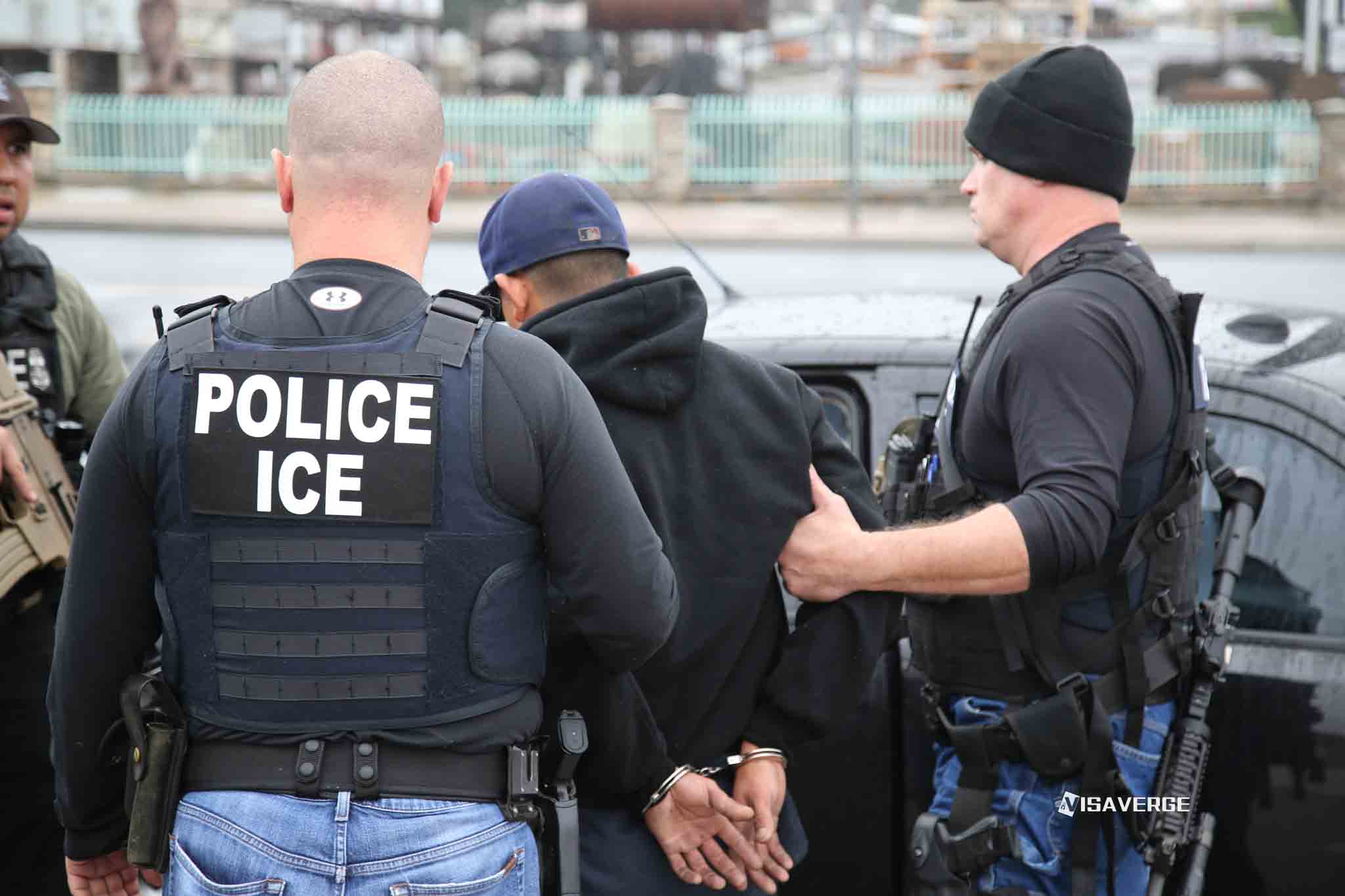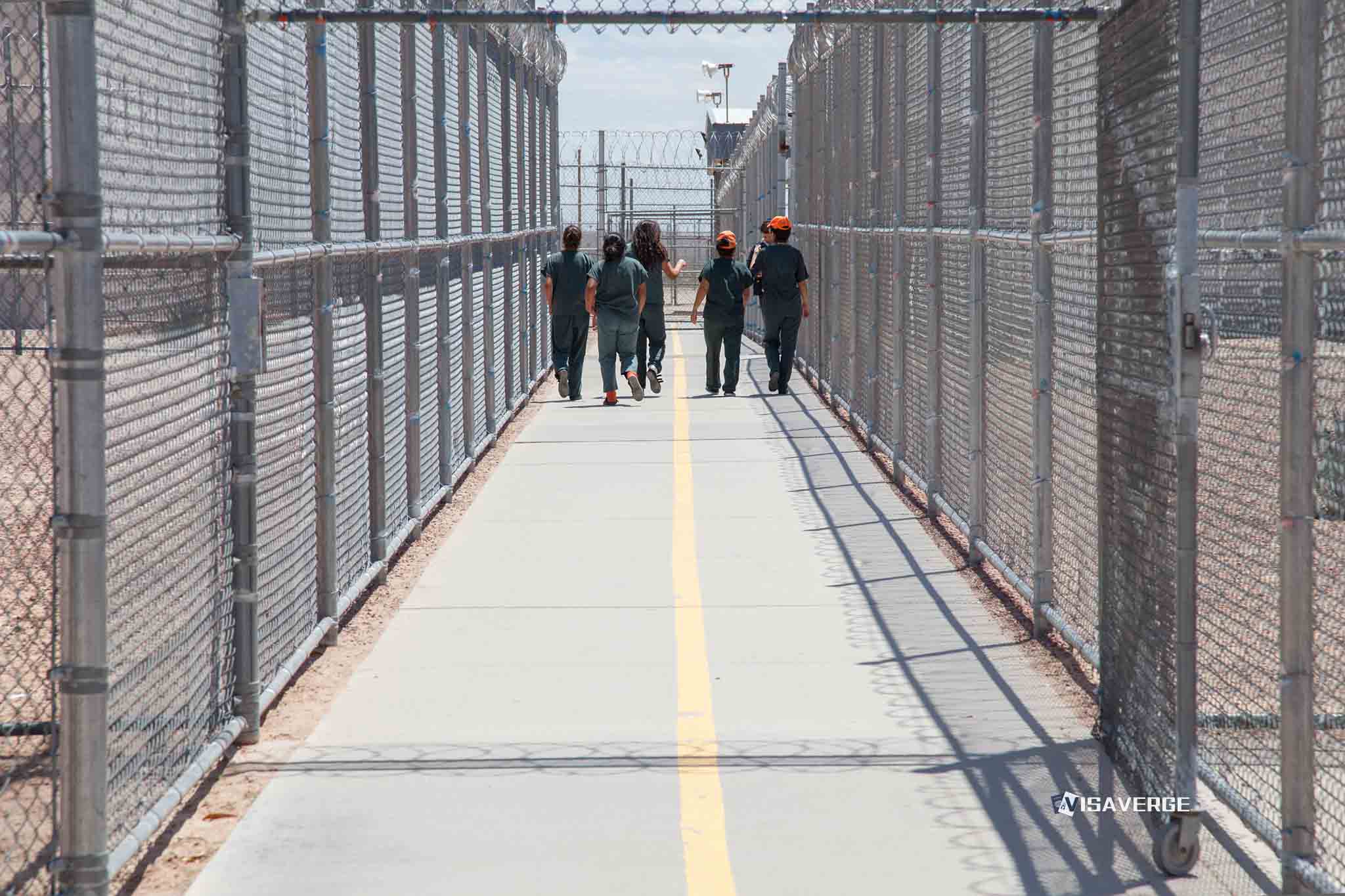Key Takeaways
• June 12, 2025, protests in Salt Lake City drew 600 to over 1,000 participants opposing ICE raids.
• Four Utah companies profit from ICE contracts; one actively lobbies for expanded immigration enforcement.
• Trump administration’s 2025 immigration enforcement increases raids aiming for largest mass deportation program.
Utah Faces Immigration Raid Protests as Local Companies Profit from ICE Contracts
As of late June 2025, Utah has become a center of attention in the national debate over immigration enforcement. The state has seen large protests against Immigration and Customs Enforcement (ICE) raids, while at the same time, several local companies are making money from contracts with ICE. One of these companies is even lobbying for more immigration enforcement in Utah. This situation highlights the complex relationship between federal immigration policy, local business interests, and community responses.

Protests Erupt in Salt Lake City Over ICE Raids
On June 12, 2025, between 600 and over 1,000 people gathered in downtown Salt Lake City to protest ICE raids and what many see as harsh immigration policies. The protest was mostly peaceful, though there were a few minor incidents, such as the vandalism of a Tesla Cybertruck and a brief fight. Police officers in riot gear appeared suddenly but left soon after, and the reason for their quick arrival and departure is still unclear.
These protests in Utah are part of a larger national movement. Across the United States 🇺🇸, people have been demonstrating against ICE raids, which have increased under President Trump’s directive to carry out what he called the “single largest Mass Deportation Program in History.” This announcement, made on social media in mid-June 2025, has caused fear and anxiety among both undocumented and documented immigrants.
Utah’s state and local leaders have been watching these developments closely. They are preparing for more protests and possible unrest as anti-ICE feelings spread from big cities like Los Angeles to Utah. According to analysis by VisaVerge.com, the protests reflect deep concerns about the impact of immigration enforcement on families, workers, and communities.
Local Companies Benefit from ICE Contracts
While many Utah residents are protesting ICE actions, four local companies have been identified as making money from contracts or business deals with ICE. Although the specific names of these companies have not been made public, it is known that at least one of them is actively lobbying for more ICE operations and increased funding for immigration enforcement in Utah.
These companies provide services such as:
- Detention facility management
- Transportation of detainees
- Technology solutions for tracking and processing immigrants
The fact that some local businesses profit from ICE contracts while also pushing for more enforcement creates a complicated situation. On one hand, these companies benefit financially from federal immigration policies. On the other hand, many people in Utah are protesting those same policies, arguing that they harm immigrant communities and disrupt families.
Federal Policy Drives Increased ICE Activity
The Trump administration has sharply increased immigration enforcement in 2025. ICE is now conducting more raids, especially at workplaces suspected of hiring undocumented immigrants. These actions are part of a broader plan to discourage illegal immigration by making enforcement more visible and aggressive.
Utah courts have responded to the protests by allowing employees to leave work early or stay home on days when large demonstrations are expected. This shows that officials recognize the scale of the protests and their potential impact on daily life.
There have been no recent changes to Utah’s state immigration laws, but the state is directly affected by federal ICE policies and actions. The increased enforcement has led to more fear and uncertainty among immigrants, both those without legal status and those who are documented.
How ICE Raids Work: Step-by-Step Overview
To help readers understand what happens during an ICE raid, here is a simple breakdown of the typical process:
1. Target Identification: ICE gathers information to find workplaces or individuals suspected of immigration violations.
2. Coordination with Local Police: ICE may work with local law enforcement to plan the raid.
3. Raid Execution: ICE agents enter the targeted location, such as a workplace or home, to detain people they believe are in the country without legal status.
4. Detention and Processing: Those detained are taken to ICE facilities, where they are processed. This can include being held in detention or starting deportation proceedings.
5. Legal Proceedings: Detainees may have the chance to appear in immigration court and get legal help, but the results can vary widely.
For more information about ICE’s official role and procedures, readers can visit the U.S. Immigration and Customs Enforcement (ICE) official website.
Who Are the Key Stakeholders?
Several groups are deeply involved in Utah’s current immigration situation:
Protesters and Immigrant Advocacy Groups
– These groups strongly oppose ICE raids, calling them inhumane and harmful to families and communities.
– They organize protests and provide support to those affected by enforcement actions.
Local Companies with ICE Contracts
– These businesses have a financial interest in keeping or expanding ICE operations.
– At least one company is lobbying for more immigration enforcement, hoping to secure more contracts.
Utah State and Local Officials
– Officials are trying to balance public safety with federal demands for enforcement.
– Some have allowed workers to leave early during protests to avoid conflict or disruption.
ICE and Federal Authorities
– ICE continues to carry out raids and detain people as part of the Trump administration’s policies.
– Federal officials argue that strict enforcement is necessary to uphold immigration laws.
Immigrant Communities
– Many immigrants, both documented and undocumented, live in fear of raids and deportation.
– Families worry about being separated, and workers are anxious about losing their jobs.
Quantitative Data: Protest Size and Enforcement Goals
- The June 12, 2025 protest in Salt Lake City drew between 600 and over 1,000 people.
- President Trump’s administration has announced plans for the largest mass deportation program in U.S. history, though exact numbers for Utah have not been released.
Practical Effects on Utah’s Communities and Businesses
The increased ICE activity and protests have several real-world effects:
For Immigrant Workers and Families
– Many live in constant fear of raids, detention, or deportation.
– Children worry about being separated from their parents.
– Some families avoid public places or stop sending their kids to school out of fear.
For Businesses
– Employers face challenges in communicating with workers and following the law.
– Raids can disrupt operations, especially in industries like agriculture, construction, and services, where many immigrants work.
– Some businesses are unsure how to handle ICE visits or what their legal responsibilities are.
For the Broader Community
– The protests and enforcement actions have led to tension and anxiety.
– Community trust in law enforcement and government can suffer when people feel targeted or unsafe.
Legal Rights and Resources for Immigrants
Immigrants who are detained by ICE have certain rights, though the process can be confusing and stressful. It is important for individuals to know:
- They have the right to remain silent and not answer questions about their immigration status.
- They can ask to speak to a lawyer before answering questions or signing documents.
- They have the right to a hearing before an immigration judge in most cases.
For those seeking legal help or more information, local immigrant advocacy organizations and legal aid groups can provide support. The U.S. Citizenship and Immigration Services (USCIS) website also offers official information about immigration forms and processes.
Business and Political Implications
The relationship between local companies and ICE is drawing attention. When businesses profit from enforcement contracts and lobby for more ICE activity, it raises questions about the influence of money on public policy. Some community members feel that these companies are putting profits ahead of people’s well-being.
At the same time, the protests and public backlash may affect local politics. Lawmakers could face pressure to change how Utah responds to federal enforcement or to push for different policies at the state level.
Historical Background: Utah’s Immigration Story
Utah has a long history of immigration, with many people coming to the state for work in agriculture, construction, and service jobs. The state’s immigrant population includes both documented and undocumented workers. Over the years, the intensity of immigration enforcement has changed depending on who is in the White House.
The current situation under President Trump’s administration is one of the most aggressive periods of enforcement in recent memory. This has led to more protests, public debate, and concern about the future for many families.
Expert Perspectives: Social and Psychological Impact
Experts say that ICE raids do more than just remove people from the country. They also create lasting fear and stress in immigrant communities. Children may struggle in school, and adults may avoid seeking medical care or help from the police because they are afraid of being detained.
Business leaders are also worried. Raids can cause sudden labor shortages and disrupt daily operations. Some are calling for clearer rules and better protections for workers.
Advocacy groups argue that aggressive enforcement breaks apart families and weakens the community. They say that immigrants make important contributions to Utah’s economy and society.
What’s Next for Utah?
Looking ahead, several things are likely:
- Protests against ICE raids and immigration policies are expected to continue in Utah as long as enforcement remains strong.
- Local companies that benefit from ICE contracts may step up their lobbying efforts to secure more business.
- Utah officials may introduce new measures to manage protests and keep the peace.
- Federal immigration policy could change, depending on political developments and public pressure.
Practical Steps for Those Affected
If you or someone you know is worried about ICE raids, here are some steps to consider:
- Stay informed about your rights and have a plan in case of a raid.
- Keep important documents in a safe place.
- Know how to contact a lawyer or legal aid group.
- Talk to your employer about workplace policies and what to do if ICE visits.
For official information about ICE and immigration enforcement, visit the U.S. Immigration and Customs Enforcement (ICE) website.
Conclusion: Utah at a Crossroads
Utah’s experience with immigration raid protests, local business interests, and federal enforcement shows how complicated immigration policy can be. The state is facing tough questions about how to balance public safety, economic interests, and the rights of immigrants.
As the situation develops, it is important for everyone—immigrants, employers, officials, and community members—to stay informed and support each other. Whether through peaceful protest, legal support, or open dialogue, Utah’s response will shape the future for many families and businesses in the state.
For more detailed analysis and updates on immigration issues in Utah and across the United States 🇺🇸, readers can follow trusted sources like VisaVerge.com and check official government websites for the latest information.
Learn Today
ICE → U.S. Immigration and Customs Enforcement agency enforcing immigration laws and conducting raids.
Detention Facility → Location where immigrants are held during processing or deportation procedures.
Lobbying → Efforts by companies or groups to influence government policies or funding decisions.
Raids → Enforcement actions to detain suspected undocumented immigrants at workplaces or homes.
Mass Deportation Program → Government plan to remove large numbers of undocumented immigrants from the country.
This Article in a Nutshell
Utah is amid growing protests against ICE raids as local companies profit from federal enforcement contracts. These companies complicate community tensions by lobbying for more enforcement while immigrants fear deportation amidst increasing federal raids in 2025.
— By VisaVerge.com








